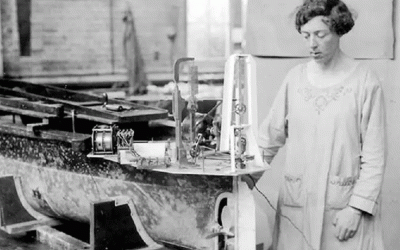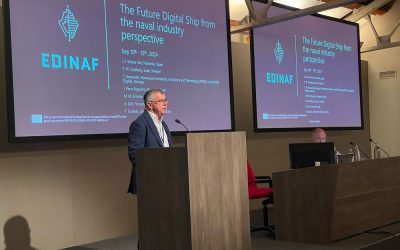Ship & Boat International: eNews December 2017

Over the past year, we’ve become accustomed to optimistic industry pronouncements in favour of remote-controlled and autonomous vessels, particularly regarding what unmanned ships and boats can offer in terms of reduced costs and enhanced personnel safety. However, not as much attention has been paid to the views of the thousands of masters, skippers and onboard personnel who will be affected by this technical revolution.
Now, seafarer representatives such as the International Transport Workers’ Federation (ITF) and trade union Nautilus International have begun to discuss the matter in greater detail. Nautilus also hosted a symposium on the subject of automation in shipping at its annual branch conference in October 2017. Ship & Boat International spoke to David Appleton, professional and technical officer at Nautilus (pictured), to gain a sense of the mood in the mess…
S&BI: When considering a likely future of increased vessel automation, what would you identify as the key causes of concern for seafarers? Are we going to see a reduced number of available jobs – and, if so, how does that square with the ‘seafarer shortfall’ that’s been publicised over the past 10-15 years?
David Appleton: I believe the key concern for seafarers is the possibility that the current buzz and excitement around autonomous shipping, a large proportion of which is generated by companies wishing to sell their products, could result in the adoption of immature technology that does not lead to increased safety levels or quality of life for those working on board.Technology clearly does have the potential to improve safety and to reduce the extremely high workloads that seafarers face. However, we have seen multiple examples in the past where technology has been introduced that was not user-friendly, and where insufficient training has been provided in its use, which has in fact resulted in higher workloads for operators and new types of accident occurring. It is therefore essential that the safety of any new systems introduced is thoroughly demonstrated before acceptance, and that they provide a clear benefit rather than just being introduced ‘because we can’.
With regards to the supposed seafarer shortage, I do not believe this is down to a shortage of individuals who are willing to work at sea but a shortage of individuals who are willing to work in the conditions that are currently prevalent in many parts of the industry. If technology was used effectively to reduce workload and fatigue and improve conditions on board – including connectivity with family and friends at home – then we may well see an increase in the proportion of young people interested in a career at sea.
S&BI: Do you think that, even on highly advanced autonomous or remote-controlled vessels, the human element will disappear entirely? Or will there always be a requirement for human involvement or interaction at some stage?
David Appleton: There will always be a requirement for human interaction at some stage. There are various legal, operational and economic obstacles to fully autonomous shipping, which will limit it to specialist, small-scale operations – if and when the technological concept is effectively demonstrated.
In the near to medium term, it’s much more likely that we will see an increase in ‘smart ships’ with increased levels of decision-making assistance provided by onboard systems or ships controlled from ashore. In both cases, there will still be a need for input from skilled professionals: so, whilst the nature of the job may change, seafaring skills will still be required.
S&BI: Could an increase in adoption of autonomous systems result in any benefits for seafarers – ie, decreasing levels of stress and fatigue, reducing exposure to onboard hazards (slips, trips and falls and potential exposure to fires, etc)? Or are these benefits being overstated by the technology developers?
David Appleton: As previously stated, if technology is used to reduce workloads and improve safety, then there are clear benefits for seafarers. However, developments in technology in the past have not led to reduced workloads, but have instead created a justification for reduced manning and a resulting increase in workloads and fatigue-related accidents.
This is why it is important that shipping companies have a clear idea of what exactly they are trying to achieve before accepting new systems – because if jobs are lost and accidents increase, then the technology has not actually benefited anyone at all.
S&BI: Is there a risk that, with greater reliance on automated systems, vital seafaring skills might be lost, or weakened somewhat?
David Appleton: If you look at aviation, it’s recognised that the increase in automatic systems can lead to ‘skills fade’ among pilots. This problem normally comes to light when there is an emergency of some sort and decisive action is required to recover the situation. This would also be a real risk for the maritime sector if skilled officers were reduced to the role of passive observers. While it is relatively easy to programme a system to operate effectively when everything is going well, it cannot be programmed for every eventuality that could possibly occur at sea. It is when the unexpected happens that the skills of experienced mariners really come into their own.
Proponents of autonomous ships often point to the figures relating to how many accidents are caused by human error, but there are no figures for how many are prevented by the quick thinking and adaptability of a skilled mariner – which cannot be programmed into an automated system.
The full interview will be available in Ship & Boat International January/February 2018.





